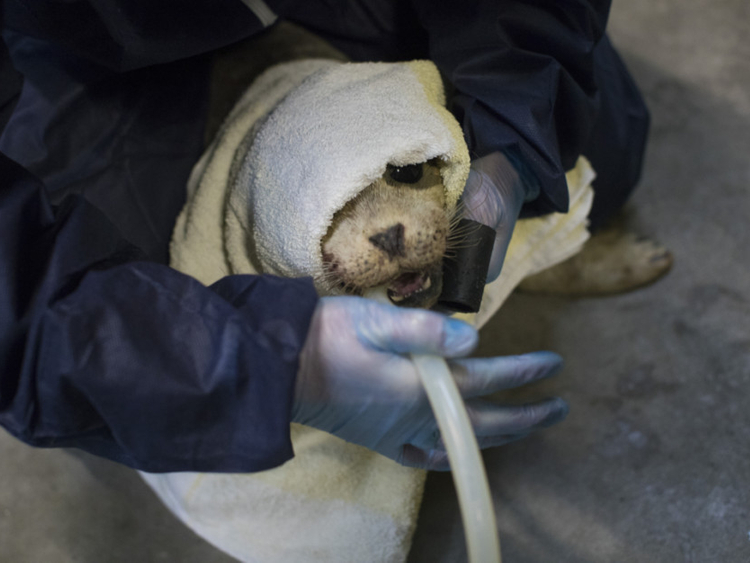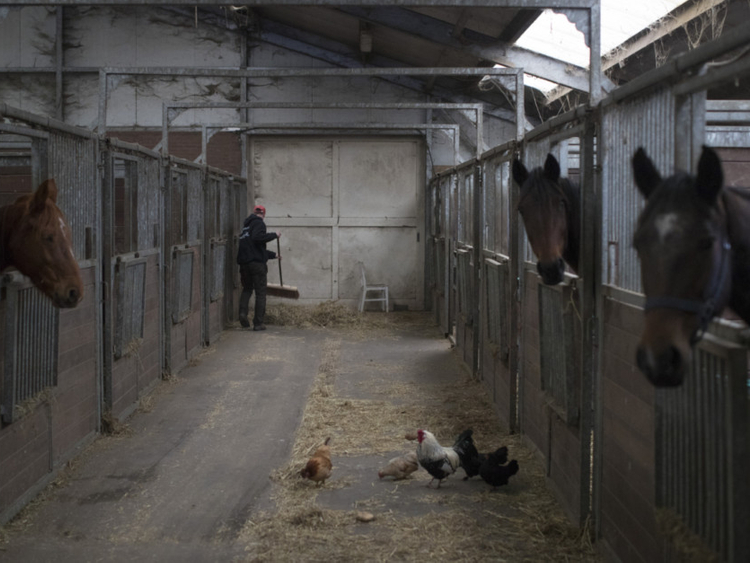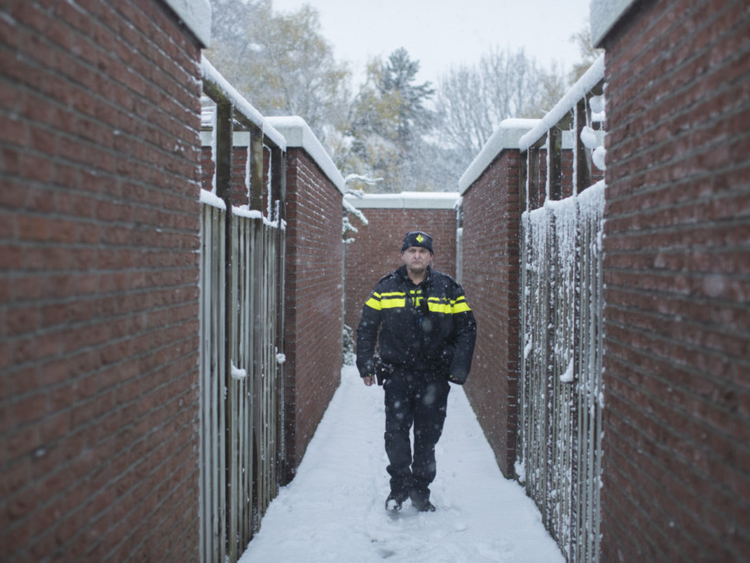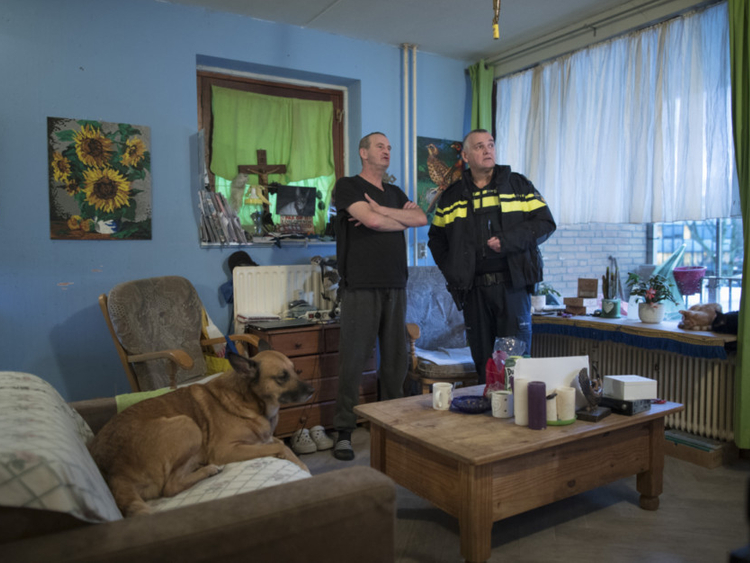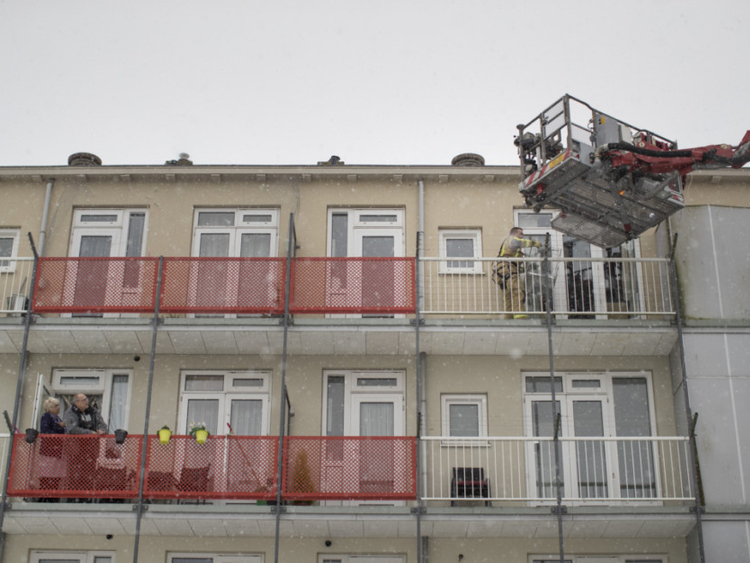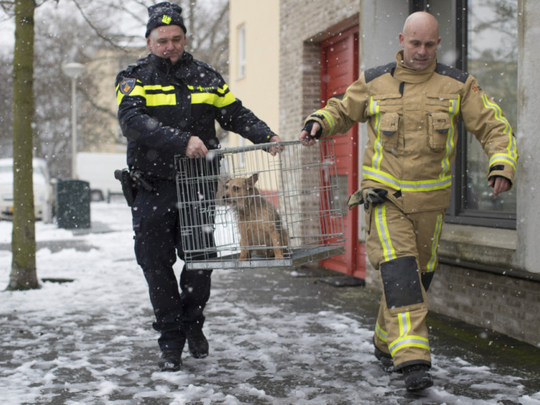
THE HAGUE (Netherlands): Hours before a rare snowstorm hit this city last month, Sgt. Erik Smit got a call from dispatch: A Jack Russell was locked out on a third-storey balcony.
Neighbours heard it barking and knew that the owner, who had left for work at 7.30am, would not be back until the end of the day, when the terrace would be covered by several inches of snow.
Smit, a 39-year veteran of the national police force, rang a few doorbells and yelled some questions to curious but uninformed residents. He then radioed for a 22-tonne firetruck with a crane and platform.
A half-hour later, at a taxpayer cost of roughly €500 (Dh2,294 or $620), the rescued dog was warming up in an animal ambulance. Smit got back into his squad car and continued his day.
“He’ll have to call me and explain the situation,” he said of the dog’s owner, who would eventually be fined €150 for animal neglect.
Smit is one of roughly 250 full-time members of the animal police force in the Netherlands (many more are trained but do not carry out the function exclusively). Of the approximately 3 million calls made to The Hague area police each year, roughly 3,000 involve animals.
Like a Humane Society with guns, handcuffs and badges, members of the animal police force are regular officers with extra training and special equipment.
A 911-type emergency line for animals — dial 144 from any phone in the Netherlands — dispatches the officers and supplies the vast majority of their leads.
The work is a mix of animal protection and human social services, finding practical solutions — like monthly visits to a troubled dog and its owner to ensure all is well — and judicial procedures like fines.
“Obviously, the first thing I do is to look after the animals, but often when you look further, you see the things aren’t going so well for the owner of the animals,” said Smit, who estimates he sees malicious intent in only about 20 per cent of cases.
During a normal working day, he might help rescue a sick seal at the beach, help to leash or confine an aggressive dog or investigate private residences where people collect animals. That included recently rescuing 60 guinea pigs from a home after neighbours complained about the smell.
Larger problems
In lesser cases, a prosecutor can hand out fines and community service without taking the case to a judge. But about 100 times a year the cases go to court, with maximum penalties of three years in prison or fines of nearly $25,000, though such sentences are rare.
Like Smit, Tamara Verdoorn, the prosecutor in charge of animal cases in The Hague district court, sees a lot of people whose run-ins with animal law-enforcement reflect larger problems. “Most people who neglect animals are also neglecting themselves,” she said.
While some animals caught up in the legal system are given up for adoption, certain dogs are examined to ensure they do not pose a threat.
One of the first officers to be trained in the animal police force, Smit says he has learnt most skills through talking with veterinarians, farmers and other experts.
And while his job leads him to some gruesome scenes — a week before the snowstorm, a pony in a city farm was fatally beaten — many encounters end happily.
— New York Times News Service


